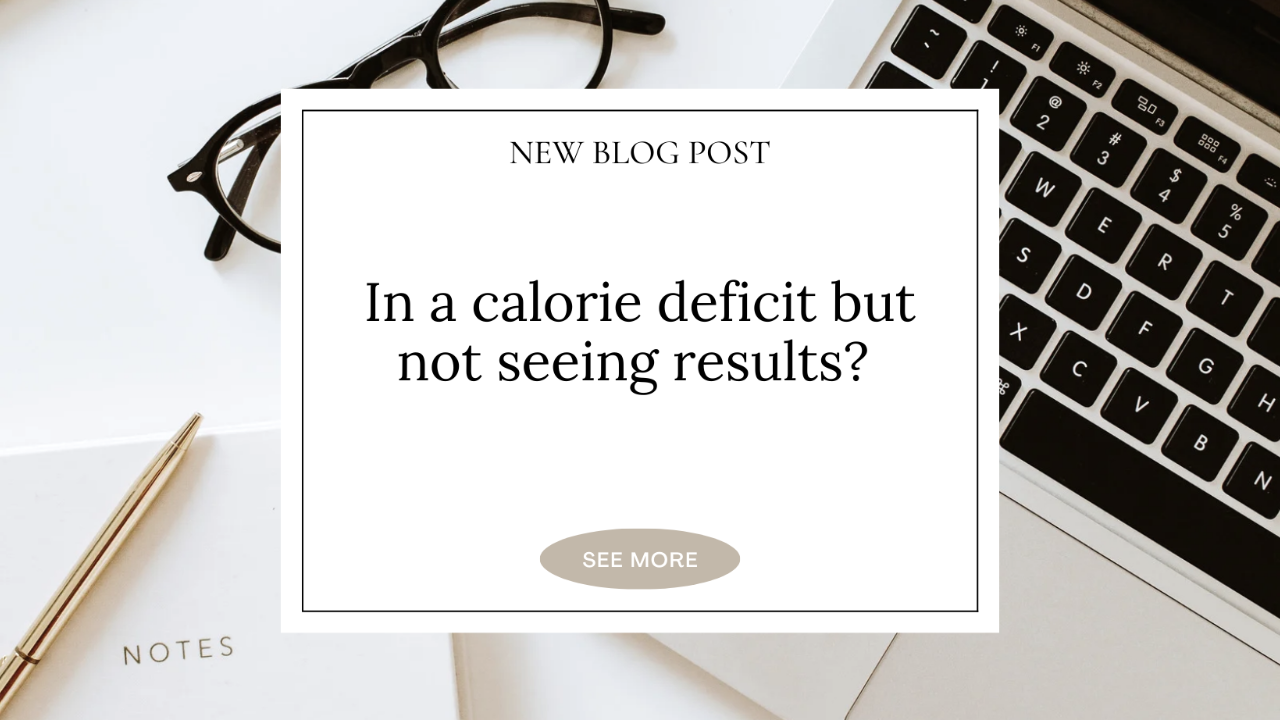Why you're not losing body fat.. even in a calorie deficit
Mar 21, 2025
Ok so you’re counting your calories, staying consistent, and yet—the scale isn’t budging. Frustrating, right? If you’re truly in a calorie deficit but not seeing results, several hidden factors might be at play. Let’s dive into the real reasons why your weight loss has stalled.
1. You’re Not Actually in a Deficit
Many people underestimate how much they eat and overestimate how much they burn. Common mistakes include:
✔️ Inaccurate food tracking – Portion sizes are often misjudged.
✔️ Hidden calories – Cooking oils, dressings, and “healthy” snacks can add up.
✔️ Inconsistent tracking – Not logging weekend meals can skew weekly intake.
✔️ BLTs (Bites, Licks, and Tastes) – Those little nibbles throughout the day add up more than you think!
Solution: Track meticulously for a week using a food scale and an app like MyFitnessPal.
2. Metabolic Adaptation Is Slowing Your Progress
The body is smart—it adapts to a prolonged calorie deficit by lowering your metabolic rate. This includes:
🔹 Reduced NEAT (Non-Exercise Activity Thermogenesis) – Less fidgeting, standing, and moving unconsciously.
🔹 Lower resting energy expenditure – Your body conserves energy to maintain balance.
Solution: Take periodic diet breaks to reset metabolism and include resistance training to maintain lean muscle.
3. Stress & Sleep Are Holding You Back
Chronic stress and sleep deprivation can elevate cortisol, leading to:
❌ Water retention – Making fat loss less noticeable on the scale.
❌ Increased hunger hormones – You crave more food without realising it.
Solution: Prioritise 7-9 hours of quality sleep and manage stress with mindfulness or low-intensity movement.
4. You’re Losing Fat, But Not Seeing Scale Changes
Weight loss ≠ fat loss. If you’re training properly, you may be:
✅ Gaining muscle while losing fat.
✅ Retaining water due to workouts or hormonal fluctuations.
Solution: Track measurements, photos, and strength progress, not just weight.
5. Medical Conditions & Medications Can Impact Fat Loss
Some conditions, like PCOS, hypothyroidism, or insulin resistance, can make weight loss harder. Medications such as antidepressants and hormonal treatments may also influence metabolism and appetite.
Solution: If you suspect a medical issue, consult a healthcare professional for proper testing and advice.
6. Ozempic & GLP-1 Medications: A Weight Loss Shortcut?
Weight loss drugs like Ozempic and Wegovy have gained popularity for their ability to suppress appetite, but they are not a magic fix. They are best used under medical supervision for individuals struggling with obesity or metabolic disorders. Sustainable habits still matter.
Final Thoughts
If you’re in a calorie deficit but not losing weight, don’t panic. Tracking accuracy, metabolic adaptation, stress, sleep, body composition, and medical conditions all play a role. Instead of just focusing on the scale, assess your entire approach and make the necessary tweaks.
💬 Have you experienced a weight loss plateau? Let’s discuss in the comments!
📢 For more expert insights on nutrition, fitness, and metabolism, subscribe to my blog!
Consider 1:1 Nutrition Coaching with me now to unlock your full potential
Stay connected with news and updates!
Join my mailing list to receive the latest news and updates.
Don't worry, I hate spam too.
I hate SPAM. I will never sell your information, for any reason.

